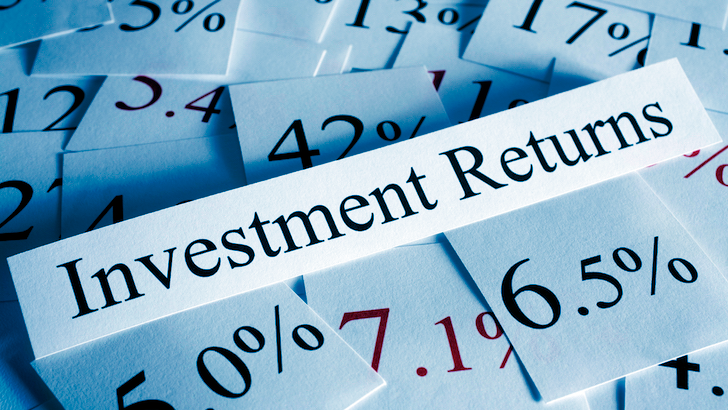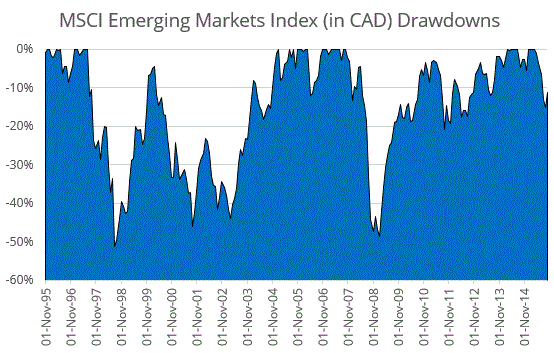What sort of returns can I expect from my investments?
This is a question that everyone wants to know the answer to before they invest. Whether you are investing for retirement, investing for your child’s education or just investing for a rainy day, having a realistic idea of what your investments may return is important.
If high expected returns are likely, then you won’t need to save as much to reach your goal. But if expected returns are on the low side of historical averages, like now, then you will need to save more.
Having return expectations are much higher than what is reasonable, can give you a false sense of security and you may not be saving enough to achieve your goal.
What is ModernAdvisor’s Approach to Forecasting Returns?
At ModernAdvisor we do an annual survey of major investment dealers and research firms for their expectations of future performance for the various asset classes. Most of the forecasts we review are for a 10 year period, which generally includes both bull and bear markets and at least 1 recession. While these forecasts are prepared by highly respected firms, unfortunately any forward looking financial market or economic forecast is often wrong.
On a quarterly basis, we update our expected return models for the asset classes we use in client accounts. We have adopted the models of a well-respected U.S. investment research firm and adapted them for Canadian investors.
These forecast models take into account many different factors. For stocks, they include current dividend yield, change in dividend yield, current valuation as compared to long-term average valuation, interest rates. For fixed income, the models typically include, current yields and long-term yields, credit losses, etc.
Many advisors and individual investors often target annual returns of 6-8% for a diversified portfolio. With interest rates and market returns at their current low levels, a return in that range may not be possible, without taking a lot more risk than in the past. Returns on all asset classes have been declining in recent years.
Given today’s low interest rate, low return environment, what are reasonable expected returns for the various asset classes?
It is important to keep in mind that these returns are before fees and taxes. If you are investing in these asset classes through ETFs, then you can expect the ETF to have an MER between 0.06% (Canadian stocks) and 0.60% (emerging market bonds). Withholding taxes on earnings from the international ETFs range from 0.20% to 0.40% per year. If you hold the ETFs in a taxable account (that is, not an RRSP/RRIF or TFSA), then you will pay taxes on a portion of the distributions received, but get a credit for the withholding tax paid.
If your asset allocation was this:
the expected portfolio return based on the expected annual performance above is only 3.64%.
If you were more aggressive and had less in bonds and more in emerging markets, you would have an expected return of a little over 5%. To get to a 6% return, you would need a very aggressive portfolio that has 35% in emerging market stocks and 0% in US stocks and Canadian short-term bonds. Based on the above expected returns, even if you put 100% into emerging market stocks, your best possible return would be 7.53%.
Why are the expected returns so low?
One reason behind low expected returns is high valuations. If you buy an investment, such as a stock, when it is overvalued then your future returns are likely to be lower than the historical average for that investment. Conversely, if you buy an investment when it is undervalued, then your future returns are likely to be higher than the historical average for that investment.
One way to determine the long-term valuation of a stock is to look at the CAPE ratio, also known as the Shiller 10 year P/E ratio. Research Affiliates calculates the Shiller 10 year P/E for many different countries and makes them available on their website.
Currently, the US stock market overall is very overvalued relative to past history (currently 25 vs a median of 16). The median is the middle of a series of numbers, that is, half of the numbers in a series are above the median and half of them are below.
The valuation of stock markets in Canada, the UK and Japan are all below their medians (meaning they are slightly undervalued), while stock markets in countries such as Brazil, China, India, and Russia are at their lowest levels since the mid-1990s (meaning they are very cheap).
What does this mean for you?
If you were expecting that returns of 10% on stocks were likely going forward, you will need to reset your expectations. On individual stocks, that level of return may be possible, but the current forecast for stocks does not suggest that will be likely over the next 10 years.
Before you go loading up on emerging markets stocks in search of returns, keep in mind that they are more volatile than Canadian stocks, US stocks, or stocks from other developed market countries. They also go through many periods where they are in drawdowns of more than 20%, that is, they are down more than 20% from their highs. Over the last 20 years, there have been 3 different periods where the MSCI Emerging Markets Index (in CAD) has been down more than 40% from its highs: 1998, 2001-2003 and 2008.
A better approach is to ensure that you have a diversified investment portfolio that is suitable for your risk appetite and your risk taking ability. Then make sure your rate of savings is enough to meet your goals given the lower level of expected returns. If it is not, then look for ways to save more towards your goal, and/or look for ways to reduce the fees you are paying on your investments, such as switching from mutual funds to ETFs. If that is not enough, you may need to adjust the time frame on your goal.

